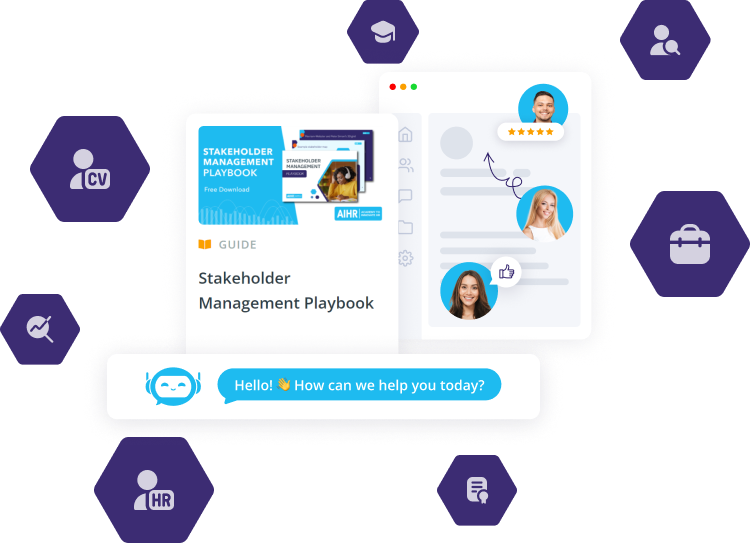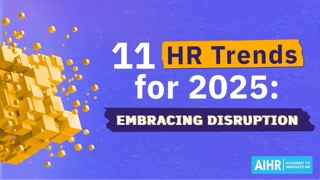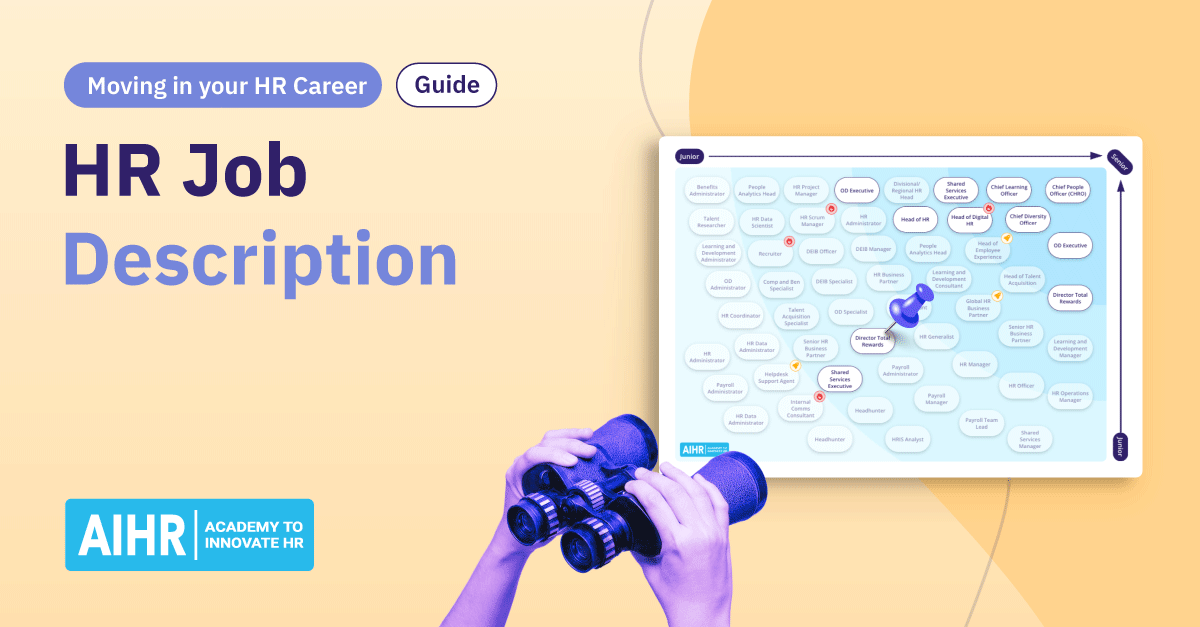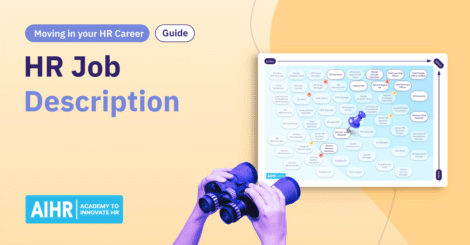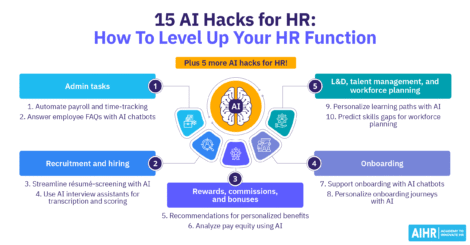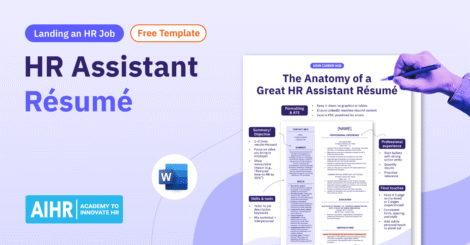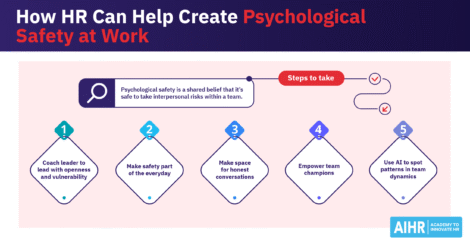The Data Scientist is a professional working in the HR department, who can apply statistical theory and methods to collect, interpret, and summarize HR data. Based on these data, they can make predictions and present clear, actionable recommendations on HR-related issues.
Contents
Role family, salary range & work experience
Key responsibilities
Skills & competencies
Job description template
Detailed responsibilities & tasks
KPIs for this role
Training programs
Role family, salary range & work experience
- HR Role family: Solution architect
- Salary range: $93,000 – 114,000
- Work experience: 7-9 years
Key responsibilities
- Contributes to driving data-driven decision-making throughout HR and in the organization
- Consults and advises business leaders on HR-related issues with fact-based recommendations and action plans
- Utilizes data to help deliver solutions and strategies to address current and future business challenges
- Develop predictive models to identify trends and patterns, forecast outcomes, and inform HR decisions.
Skills & competencies
- Analytics Translation
- Data Driven
- Delivers through technology
- Drives Results
- People Analytics
- Technology Empowered
Job description template
The Data Scientist is responsible for working with large and complex datasets to derive insights and recommendations that will inform strategic HR decisions. You will collaborate with HR business partners, analysts, and other stakeholders to develop and implement data-driven solutions that improve the effectiveness of our HR programs and initiatives.
Responsibilities:
- Analyze large, complex datasets related to HR, such as employee demographics, performance, compensation, and engagement data.
- Develop predictive models to identify trends and patterns, forecast outcomes, and inform HR decisions.
- Design and implement experiments to test the effectiveness of HR initiatives and programs.
- Create data visualizations and dashboards to communicate insights and recommendations to HR and business leaders.
- Collaborate with HR business partners, analysts, and other stakeholders to identify opportunities for data-driven improvements in HR processes and programs.
- Stay up-to-date on the latest developments in data science, HR analytics, and technology, and leverage this knowledge to drive innovation and continuous improvement in HR.
- Ensure data quality, accuracy, and completeness in all analyses and reports.
- Work with IT and other stakeholders to ensure the security, privacy, and compliance of HR data and analytics.
Requirements:
- Bachelor’s degree in data science, statistics, computer science, or related field. Master’s degree preferred.
- 3+ years of experience in data analysis, modeling, and visualization. Experience in HR analytics preferred.
- Strong analytical and problem-solving skills, with the ability to think critically and creatively about complex business problems.
- Proficiency in statistical analysis and modeling techniques, such as regression analysis, machine learning, and data mining.
- Expertise in data visualization and reporting tools, such as Tableau or Power BI.
- Strong programming skills in languages such as Python, R, or SQL.
- Excellent communication skills, with the ability to clearly and persuasively communicate complex data insights to non-technical audiences.
- Ability to work independently and collaboratively, and to manage multiple projects and priorities simultaneously.
- Knowledge of HR policies, procedures, and practices, and their impact on business outcomes.
- Familiarity with HR systems and technologies, such as HRIS and ATS
Detailed responsibilities & tasks
- Analyze large, complex datasets related to HR, such as employee demographics, performance, compensation, and engagement data.
- Develop predictive models to identify trends and patterns, forecast outcomes, and inform HR decisions.
- Design and implement experiments to test the effectiveness of HR initiatives and programs.
- Create data visualizations and dashboards to communicate insights and recommendations to HR and business leaders.
- Collaborate with HR business partners, analysts, and other stakeholders to identify opportunities for data-driven improvements in HR processes and programs.
- Stay up-to-date on the latest developments in data science, HR analytics, and technology, and leverage this knowledge to drive innovation and continuous improvement in HR.
- Ensure data quality, accuracy, and completeness in all analyses and reports.
- Work with IT and other stakeholders to ensure the security, privacy, and compliance of HR data and analytics
Detailed skills description
- Data Analysis: A Data Scientist should have a deep understanding of data analysis techniques such as statistical modeling, machine learning, and data mining.
- Data Visualization: The ability to create interactive and insightful visualizations to communicate complex data insights to non-technical stakeholders is crucial.
- HR Knowledge: A good understanding of human resources functions and processes is essential to be able to identify HR data needs, interpret data, and provide insights and recommendations to HR leaders.
- Technical Skills: The ability to work with various databases and data warehouses, as well as programming languages such as Python and R.
- Problem-solving: A Data Scientist should be able to work independently to identify and solve complex data problems in the HR domain.
- Communication: The ability to communicate complex data findings to non-technical stakeholders in a clear and concise manner is critical.
- Business Acumen: A Data Scientist should have a solid understanding of the business objectives and how HR analytics can support these objectives.
- Attention to Detail: A Data Scientist should have a keen eye for detail, especially when working with large datasets, to ensure the accuracy and reliability of the analysis.
- Continuous Learning: A Data Scientist should be continuously learning and staying up-to-date with the latest developments in data analytics techniques and toolss
KPIs for this role
- Data accuracy: Ensuring that data is accurate, consistent and reliable to enable data-driven decision making.
- Data analysis: Analyzing large amounts of data to identify trends and patterns, and to generate insights that help inform HR strategies.
- Data visualization: Creating clear and concise visualizations of data to help stakeholders understand complex information and insights.
- Predictive modeling: Developing predictive models that help HR departments anticipate workforce trends and patterns, such as turnover rates, employee engagement, and retention.
- Process efficiency: Identifying opportunities to automate or streamline HR processes through the use of data and technology.
- Stakeholder engagement: Building strong relationships with stakeholders across the organization, including HR business partners, department heads, and senior leadership.
- Innovation: Staying up to date with the latest developments in data science, and exploring new ways to apply data and technology to HR challenges.
- Business impact: Demonstrating the impact of data-driven HR strategies on the organization’s bottom line, such as cost savings, improved retention rates, and increased employee engagement.
- Technical skills: Possessing the technical skills required to work with data, such as data mining, statistical analysis, machine learning, and programming languages such as Python and R.
- Communication skills: Communicating complex technical information to non-technical stakeholders in a clear and concise manner, and collaborating effectively with cross-functional teams.
Training programs
- People Analytics Certificate Program
- Compensation & Benefits Certificate Program
- HR Business Partner 2.0 Certificate Program


